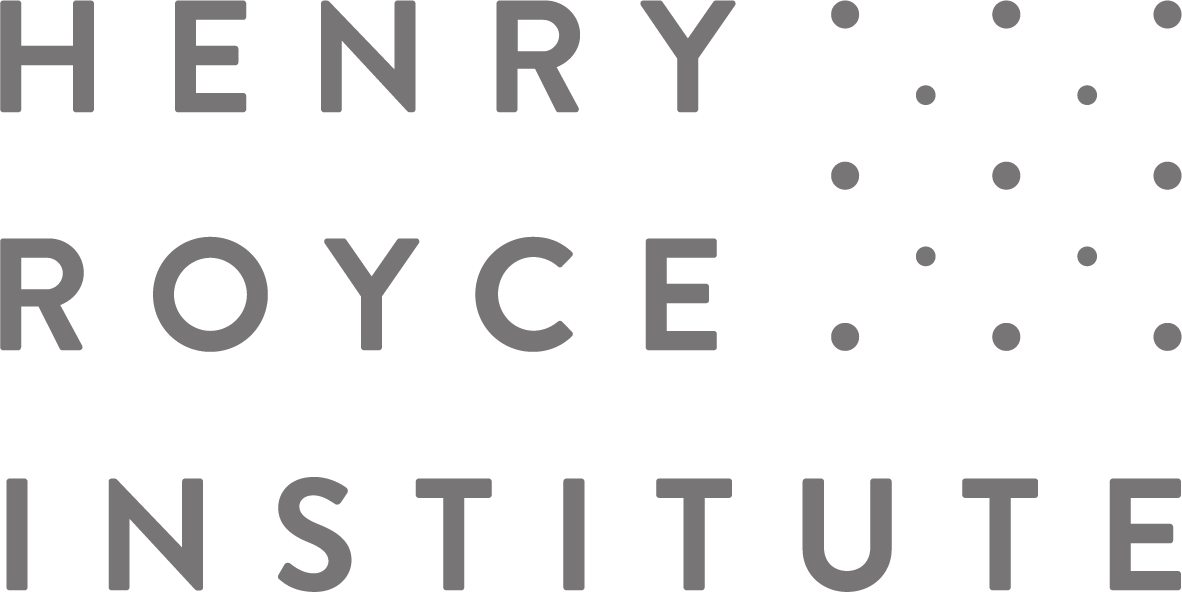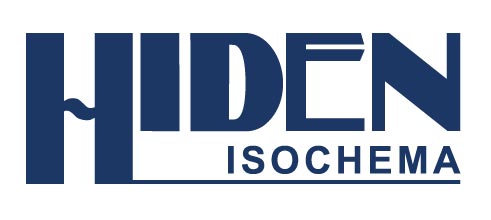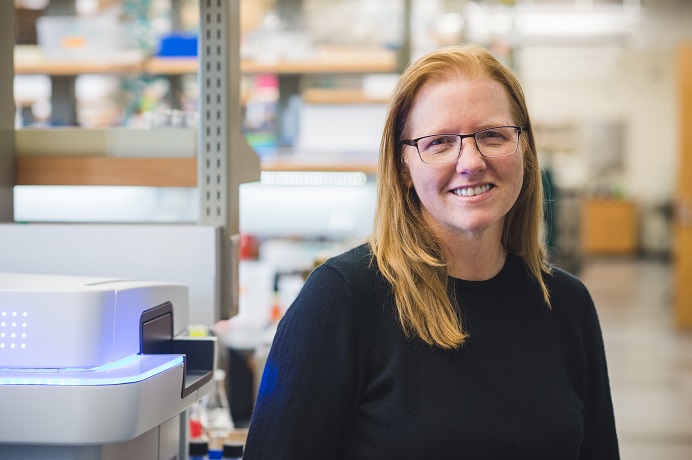 Kristi Anseth, University of Colorado Boulder, United States
Kristi Anseth, University of Colorado Boulder, United States
Kristi Anseth is a Professor of Chemical and Biological Engineering and Associate Faculty Director of the BioFrontiers Institute at the University of Colorado at Boulder. She currently holds the Tisone Professorship and is a Distinguished Professor. Dr. Anseth came to CU-Boulder after earning her B.S. degree from Purdue University, her Ph.D. degree from the University of Colorado, and completing post-doctoral research at MIT as an NIH fellow. Her research interests lie at the interface between biology and engineering where she designs new biomaterials for applications in drug delivery and regenerative medicine. Dr. Anseth’s research group has published over 400 peer-reviewed manuscripts, and she has trained more than 150 graduate students and postdoctoral associates. She is an elected member of the National Academy of Engineering (2009), the National Academy of Medicine (2009), the National Academy of Sciences (2013), the National Academy of Inventors (2016) and the American Academy of Arts and Sciences (2019). Most recently, she received the L’Oreal-UNESCO for Women in Science Award in the Life Sciences (2020). Dr. Anseth has served on the Board of Directors and as President of the Materials Research Society, Board of Directors for the American Institute of Chemical Engineers, the Board of Governors for Acta Materialia, Inc, Chair of the Board of Trustees for the Gordon Research Conferences, the NIH Advisory Council for NIBIB, and as Chair of the NAE US Frontiers of Engineering meetings and NAE Bioengineering Section.
 Svetlana Mintova, Normandy University, France
Svetlana Mintova, Normandy University, France
Svetlana Mintova’s research focuses on porous materials with expertise in synthesis of zeolites, advanced characterizations, and their applications in catalysis, separation, chemical sensors, membranes, and biomedicine. She has been recognized for the novelty and originality of her multidisciplinary research in nanosized zeolites, receiving awards such as the Baron Axel Cronstedt Award from the European Zeolite Associations Federation (FEZA), the Donald Breck Award from the International Zeolite Association (IZA), the “Le Prix La Recherche Chimie” in France, the Honorary Award from the French Zeolite Association (GFZ), the Shandong International Science and Technology Cooperation Award (Shandong) and Qingdao Award in recognition for social and research contributions (Qingdao) in China. She serves as a Visiting Professor at China University of Petroleum (UPC), President of the International Zeolite Association (IZA), and Chair of the Synthesis Commission of the IZA.
She is an Associate Editor of Inorganic Chemistry Frontiers (RSC) and Editor of Microporous Mesoporous Materials (Elsevier), and she has received the ERC Advanced Grant for 2022.
She is selected to carry the Olympic flame for Paris 2024, symbolizing academic excellence and sporting spirit.
 Thuc-Quyen Nguyen, University of California, Santa Barbara, United States
Thuc-Quyen Nguyen, University of California, Santa Barbara, United States
Thuc-Quyen Nguyen is the Director of the Center for Polymers and Organic Solids and professor in the Department of Chemistry & Biochemistry at the University of California, Santa Barbara. Nguyen received her B.S. (1997), M.S. (1998), and Ph.D. (2001) degrees in Physical Chemistry from the University of California, Los Angeles. From 2001-2004, she was a research associate in the Department of Chemistry and the Nanocenter at Columbia University working on molecular self-assembly, nanoscale characterization and devices. She also spent time at IBM Research Center at T. J. Watson (Yorktown Heights, NY) working with Richard Martel and Phaedon Avouris on molecular electronics. She joined the faculty of the Chemistry and Biochemistry Department at UCSB in 2004.
Her research interests are doping and charge transport in organic semiconductors, bioelectronics, and device physics of organic solar cells, ratchets, transistors, and photodetectors.
She is co-authored over 310 publications and 3 book chapters that received over 38,000 citations (H-index: 100). Recognition for her research includes 2005 Office of Naval Research Young Investigator Award, 2006 National Science Foundation CAREER Award, 2008 Camille Dreyfus Teacher Scholar Award, 2009 Alfred Sloan Research Fellows, 2010 National Science Foundation American Competitiveness and Innovation Fellows, 2015 Alexander von Humboldt Senior Research Award, 2016 Fellow of the Royal Society of Chemistry, 2019 Hall of Fame - Advanced Materials, 2019 Beaufort Visiting Scholar, St John’s College, Cambridge University, 2015-2019 World’s Most Influential Scientific Minds; Top 1% Highly Cited Researchers in Materials Science by Thomson Reuters and Clarivate Analytics, 2019 Fellow of the American Association for the Advancement of Science (AAAS), 2021 & 2022 Women in Materials Science by Advanced Materials, 2023 Wilhelm Exner Medal from Austria, 2023 Fellow of the US National Academy of Inventors, 2023 de Gennes Prize in Materials Chemistry from the Royal Society of Chemistry, and 2023 Elected Member of the US National Academy of Engineering.
 Matthew Rosseinsky, University of Liverpool, United Kingdom
Matthew Rosseinsky, University of Liverpool, United Kingdom
Matthew Rosseinsky obtained a degree and a D. Phil in Chemistry from the University of Oxford in 1990. He was a Postdoctoral Member of Technical Staff at A.T.&T. Bell Laboratories then in 1992 was appointed University Lecturer in Chemistry at the University of Oxford. In 1999 he moved to the University of Liverpool as Professor of Inorganic Chemistry. He was elected a Fellow of the Royal Society in 2008, and was awarded the Hughes Medal of the Royal Society in 2011. In 2013 he became a Royal Society Research Professor. He was awarded the inaugural de Gennes Prize for Materials Chemistry (a lifetime achievement award open internationally) by the Royal Society of Chemistry in 2009, the C.N.R. Rao Award of the Chemical Research Society of India in 2010 and gave the Muetterties Lectures at UC Berkeley and Lee Lectures at the University of Chicago in 2017, and the Davison Lectures at MIT in 2022. He was awarded the Davy Medal of the Royal Society in 2017. In 2019, he gave the Flack Memorial Lectures of the Swiss Crystallographic Society. In 2020, he became an Honorary Fellow of the Chemical Research Society of India. In 2022, he gave the Davison Lectures at MIT, and was awarded the Basolo Medal of the American Chemical Society Chicago Section. He received the 2023 Eni Energy Frontiers Award for the digital design and discovery of next-generation energy materials from the President of Italy. He was a member of the governing Council of the Engineering and Physical Sciences Research Council from 2015 - 2019. Matthew’s work focuses on the synthetic chemistry, design and discovery of solid-state materials, which have applications ranging from catalysis to superconductivity. His group is developing new methods of identifying functional materials, emphasising the integration of experiment with computational methods spanning physical and computer science. His work has been characterised by extensive collaboration with many academic and industrial colleagues.
-
Serena DeBeer
Max Planck Institute for Chemical Energy Conversion, Germany
-
Tao Zhang
Chinese Academy of Sciences, China
 Federico Bella (ChemComm Emerging Investigator Lectureship winner), Politecnico di Torino, Italy
Federico Bella (ChemComm Emerging Investigator Lectureship winner), Politecnico di Torino, Italy
Federico Bella is Full Professor of Chemistry at Politecnico di Torino (Italy). His main scientific activity covers post-lithium batteries and electrochemical ammonia production, through sustainable chemistry-oriented and multivariate approaches. He has published more than 130 papers and counts a h-index of 75. He has received awards from the most important worldwide scientific associations, such as the International Society of Electrochemistry (2023 Tajima Prize), the Royal Society of Chemistry (2021 Horizon Prize), the Accademia Nazionale dei Lincei (2019 Piontelli International Award), etc. He is coordinating an ERC Starting Grant project (SuN2rise), with an overall fund of 1.5 M-eur, and has recently launched the first Italian research laboratory on potassium-based batteries.
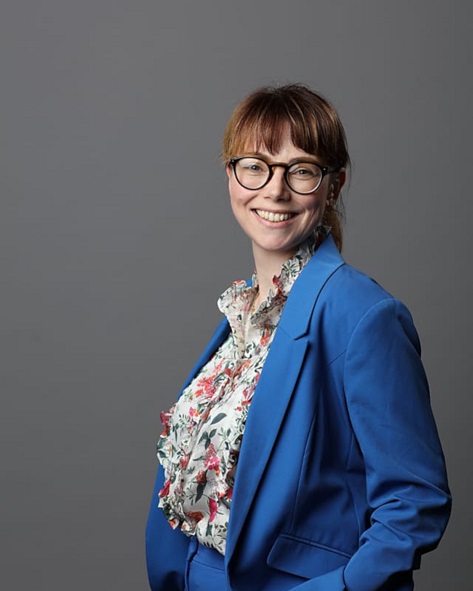 Serena Cussen, University College Dublin, Ireland
Serena Cussen, University College Dublin, Ireland
Serena Cussen (née Corr) is Full Professor of Materials Chemistry at University College Dublin. She obtained her BA and PhD degrees in Chemistry from Trinity College Dublin, before carrying out postdoctoral research at University of California Santa Barbara with Professor Ram Seshadri. Serena's research focuses on determining strategic routes to functional materials which afford control over crystal chemistry, particle size and particle morphology and deepening our understanding of the impact this has over properties, particularly for energy storage applications. Recipient of the RSC Journal of Materials Chemistry Lectureship (2017), the ISIS Science Impact Award (2021) and the RSC Interdisciplinary Prize (2023), Serena is deeply committed to career sustainability, early career mentoring, the promotion of women in STEM and public outreach.
 Judith Driscoll (Interdisciplinary Prize winner), University of Cambridge, United Kingdom
Judith Driscoll (Interdisciplinary Prize winner), University of Cambridge, United Kingdom
Judith MacManus-Driscoll is Professor in the Materials Science at the University of Cambridge and Fellow of Trinity College. She has been visiting faculty/staff member at Los Alamos National Lab. for over 20 years. She is Royal Academy of Engineering Chair in Emerging Technologies. She is fellow of RSC, IOP, IOM3, WES, APS, AAAS, MRS, and the Royal Academy of Engineering. Her research covers wide ranging oxide thin film engineering for electronic applications. She has many licensed patents and consults widely with industry worldwide. She is CSO of recent spin-out from her group in Cambridge, Nanoprint.
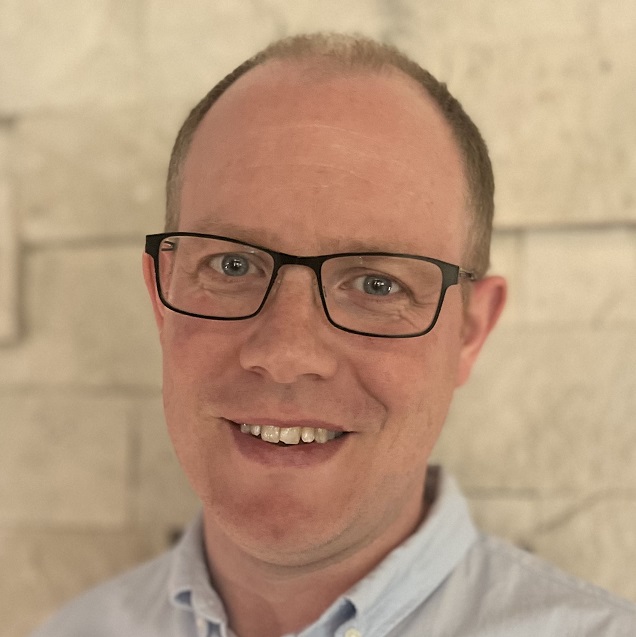 Ross Forgan (Peter Day Prize winner), University of Glasgow, United Kingdom
Ross Forgan (Peter Day Prize winner), University of Glasgow, United Kingdom
Prof Ross Forgan is Professor of Supramolecular and Materials Chemistry at the University of Glasgow. His research into the application of metal-organic frameworks in biomimetic catalysis and nanoscale drug delivery is underpinned by fundamental studies into molecular recognition and self-assembly processes inside nanoporous materials. His work has led to around 100 publications, and been recognised by award of the RSC Bob Hay Lectureship in 2020, and the RSC Peter Day Memorial Prize in 2024. He is also Chair of the RSC Porous Materials Interest Group and Director of the EPSRC Centre for Doctoral Training in Diversity Led, Mission-Driven Research.
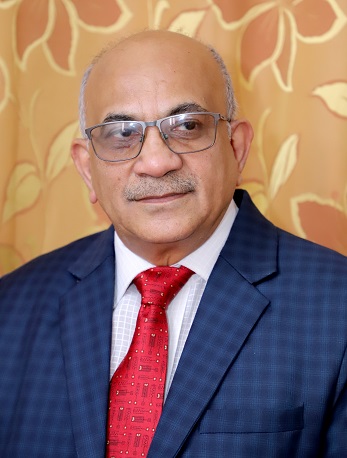 Ashok K Ganguli, Indian Institute of Science Education and Research Berhampur, India
Ashok K Ganguli, Indian Institute of Science Education and Research Berhampur, India
Professor Ganguli is currently the Director and Professor of Chemical Sciences at IISER Berhampur. He is also a Professor of Chemistry, IIT Delhi( Deputy Director, 2019-22) and the founding Director of Institute of Nano Science and Technology(Mohali, India) from 2013-2018. His main research interests are in the area of design of nanomaterials for energy conversion, biomedical applications and also superconducting materials. He has published over 350 papers and is a recipient of the National Award of Nano Science and Nanotechnology, CNR Rao-CRSI National Award, Bangalore India Nano Award, Distinguished Materials Scientist of the Year Award(2021), Lifetime achievement award of Indian Chemical Society and Gold Medal from the Society of Materials Chemistry. He is a fellow of all three science academies of India. Dr Ganguli has very keen interest to promote science outreach activities in schools/colleges.
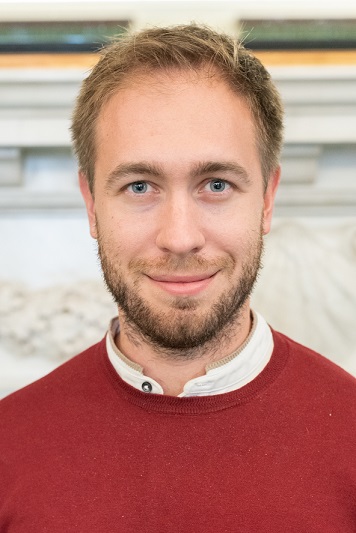 Nicola Gasparini (Materials Chemistry Early Career Prize winner), Imperial College London, United Kingdom
Nicola Gasparini (Materials Chemistry Early Career Prize winner), Imperial College London, United Kingdom
Nicola Gasparini is a lecturer in Chemistry at Imperial College London. Nicola is a member of the Class of 2020 World Economic Forum Young Scientists and the Centre for Processable Electronics. He made major scientific contributions to the photophysical properties of organic semiconductors, resulting in over 130 publications. His research interests are in organic and perovskite semiconductors, with particular interests in charge transport and recombination processes in solar cells and photodetectors. He received national and international prizes, including the 2024 Materials Chemistry Early Career Prize of the Royal Society of Chemistry and the 2023 Junior PRISM category.
 Julien Gautrot, Queen Mary, University of London, United Kingdom
Julien Gautrot, Queen Mary, University of London, United Kingdom
Julien Gautrot is Professor of Biomaterials and Biointerfaces in the School of Engineering and Materials Science at Queen Mary, University of London. After a PhD at Manchester University and postdoctoral research, first at the Universite de Montreal, then at the University of Cambridge, he joined QMUL as a lecturer in 2011. His research focuses on the development of biointerfaces and engineered biomaterials for stem cell technologies, gene delivery and regenerative medicine. In particular, his group has been exploring cross-talks between the physico-chemistry and biochemistry of soft biointerfaces (polymer brushes, hydrogels and protein assemblies) and the mechanical properties and microstructure of the cell microenvironment, and their impact on the regulation of cell adhesion and stem cell phenotype. The Gautrot lab also pioneered novel approaches to investigate the impact of physico-chemical properties of gene delivery vectors on the complexation and release profile of RNA therapeutics and the impact such processes have on potential gene therapies.
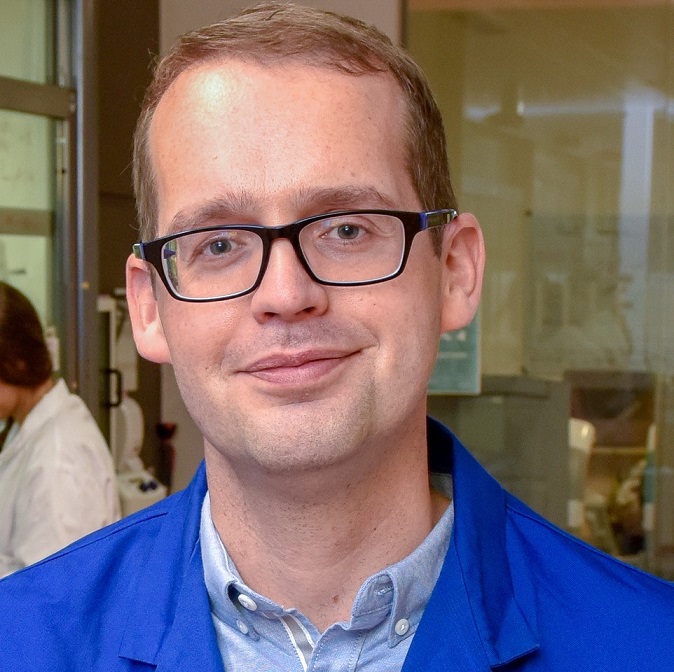 Matthew Gibson (Corday-Morgan Prize winner), University of Manchester, United Kingdom
Matthew Gibson (Corday-Morgan Prize winner), University of Manchester, United Kingdom
Matt holds a Chair in Sustainable Biomaterials at the University of Manchester, UK, in the Department of Chemistry and Manchester Institute of Biotechnology. Matt’s multidisciplinary research group focusses on developing biomaterials for Biotechnology and Healthcare. He has made significant contributions in the areas of cryobiology for the delivery of cells/tissue, and glycobiology in new biosensors. Matt was a Royal Society Industry Fellow with Cytiva (2019-2023), holds an ERC Consolidator Grant, and is co-founder of the biotech spin-out Cryologyx Ltd. Matt has been awarded several RSC prizes including the Corday-Morgan, McBain, Dextra and MacroGroup Young Researcher’s medals, and a Horizon Prize.
 Pooja Goddard, Loughborough University, United Kingdom
Pooja Goddard, Loughborough University, United Kingdom
Pooja graduated with a First Class Hons from Coventry University followed by a Ph. D. in Chemistry from the University of Warwick.
She did a series of post-doctoral researcher appointments (2005 – 2015) at Uppsala, Sweden, Bath and Huddersfield respectively. Pooja joined Loughborough as a Lecturer in 2015 and has since held a Royal Academy of Engineering Industry Fellowship. She is a Reader in Materials Modelling and currently holds a Royal Society Industry Fellowship with Echion Technologies LTD. Her research expertise is in advanced modelling of materials for batteries, nuclear decommissioning and solar technologies. This includes surface and interactions at interfaces.
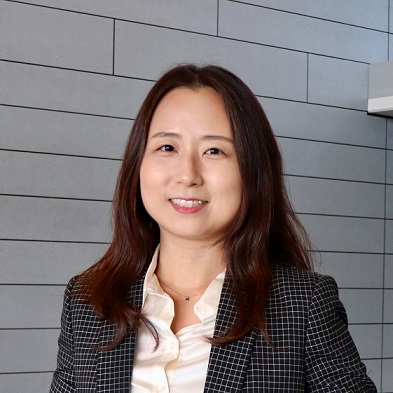 Grace Han (ChemComm Emerging Investigator Lectureship winner), Brandeis University, United States
Grace Han (ChemComm Emerging Investigator Lectureship winner), Brandeis University, United States
Grace Han received her PhD in 2015 at MIT under the guidance of Professor Timothy Swager. She then joined the Department of Materials Science and Engineering at MIT as a postdoctoral associate with Professor Jeffrey Grossman. She is currently an Associate Professor of Chemistry at Brandeis University, and her group’s research focuses on developing molecular photoswitches and photochemistry for solar energy storage and optically-controlled catalyst recycling.
Grace has been awarded honors during her independent career, including 2022 AFOSR Young Investigator Award, 2022 NSF CAREER Award, 2022 Alfred P. Sloan Fellowship, 2023 Camille Dreyfus Teacher-Scholar Award, 2023 DFG Mercator Fellowship, 2023 DoD DURIP Award, and 2024 ChemComm Emerging Investigator Lectureship Award.
 Jun Huang, University of Sydney, Australia
Jun Huang, University of Sydney, Australia
Professor Jun Huang received his PhD from University of Stuttgart in 2008. After his postdoctoral fellow at Georgia Institute of Technology and ETH Zurich, he joined the University of Sydney as a permanent faculty in 2010, moving up the ranks to Professor at Sydney. Jun is the Domain Leader of Materials in Nanoscale at Sydney Nano, Sydney Nano CO2Zero Grand Challenge Champion, and the Academic Leader of University of Sydney – Zhejiang University Joint Lab on Sustainable Environment. His research is to develop emerging nanoporous catalysts and supported nanometal catalysts for more attractive, practical, and cleaner processes using in situ characterization techniques coupled with innovative reaction engineering. Jun has published over 230 journal publications in high-rank Journals. He has been awarded over AU$ 12m research grants and many prestigious awards including ACS Sustainable Chemistry & Engineering Lectureship Award, CCST-IChemE Carbon Capture Outstanding Achievement Award, Australia’s Most Innovative Engineer, and the Vice-Chancellor’s Awards for Excellence Outstanding Research. Jun is the Editor-in-Chief of Materials Today Sustainability, Editorial Group Member of National Science Review, and the Editorial Board member of other high-rank journals.
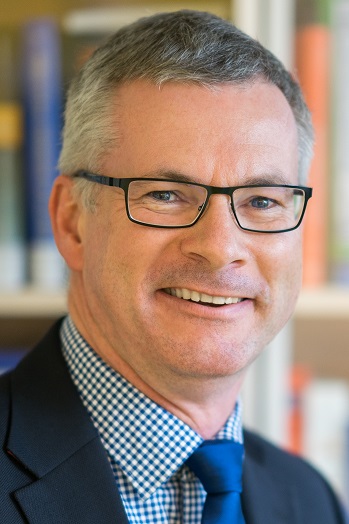 Hubert Huppertz, University of Innsbruck, Austria
Hubert Huppertz, University of Innsbruck, Austria
Hubert Huppertz studied chemistry at the University of Bayreuth, Germany. In 1997, he finished his doctorate with a fundamental work on the structural extension of nitridosilicates in the group of Prof. Schnick. Changing to the Ludwig-Maximilians-University in Munich, he conducted his habilitation from 1998-2003 with a chemical focus on high-pressure/high-temperature syntheses. In 2008, he was appointed as full professor for General and Inorganic Chemistry at the University of Innsbruck, Austria. His main research interests are dedicated to the explorative synthetic discovery of new compounds in solid state chemistry, e.g. in the field of new inorganic phosphors. Since 2013, he also fills the position of a Dean of the Faculty of Chemistry and Pharmacy at the University of Innsbruck.
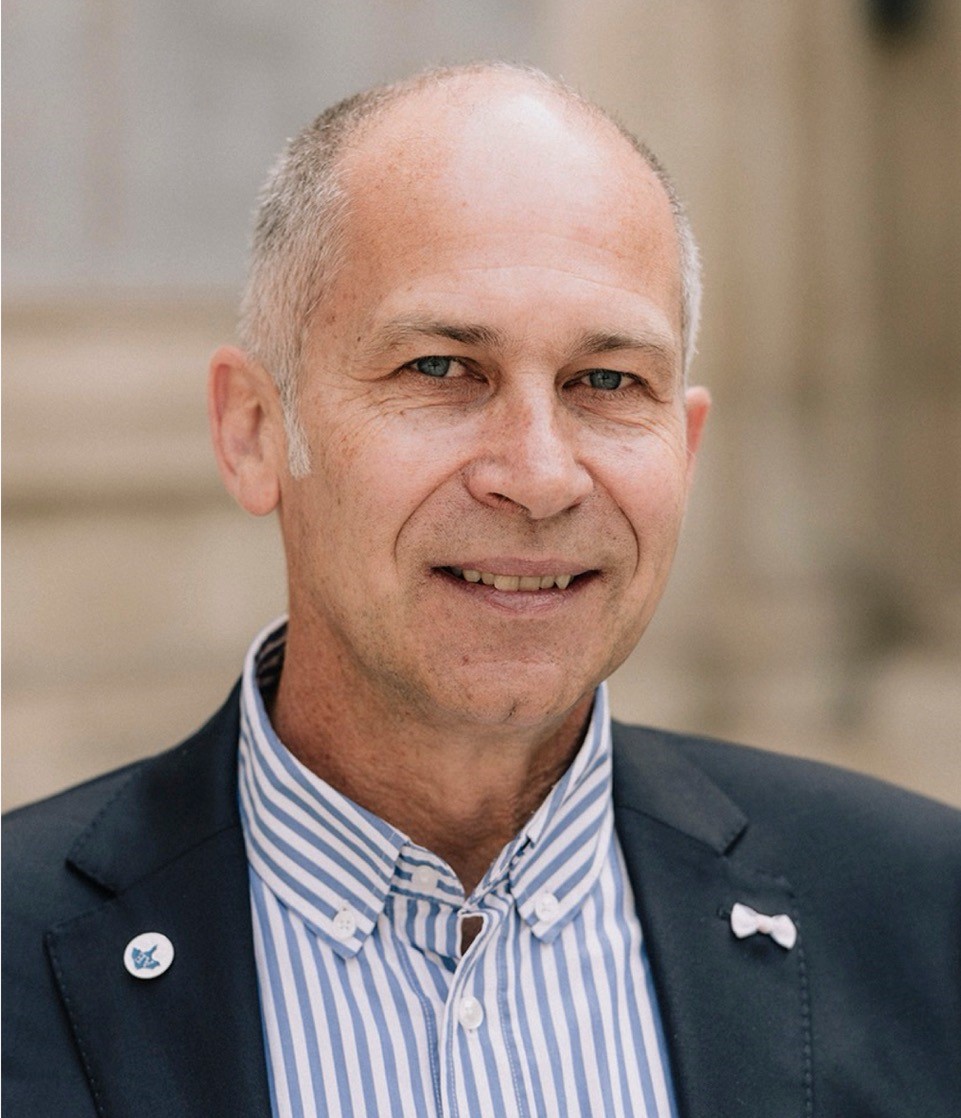 Sebastien Leccomandoux, University of Bordeaux, France
Sebastien Leccomandoux, University of Bordeaux, France
Sébastien Lecommandoux received his Ph.D. (1996) in Physical Chemistry from the University of Bordeaux. After a postdoctoral experience at the University of Illinois (UIUC, USA) in the group of Prof. Samuel I. Stupp, he started his academic career at the Laboratoire de Chimie des Polymères Organiques as Associate Professor in 1998 and was promoted to Full Professor at Bordeaux INP in 2005. He is currently Director of the Laboratoire de Chimie des Polymères Organiques (LCPO-CNRS) and is leading the group “Polymers Self-Assembly and Life Sciences”. His research interests include the design of bio-inspired polymers for biomaterials and pharmaceutical develoment, especially based on polypeptide, proteins and polysaccharide-based block copolymers self-assembly, the design of polymersomes for drug-delivery and theranostic, as well as biomimetic approaches toward design of synthetic viruses and artificial cells. He published over 230 publications in international journal, 6 book chapters and 12 patents (3 being licenced, 1 start-up created Doxanano). He is also co-director of the joint laboratory LCPO-L'OREAL. Sébastien Lecommandoux is recipient of the CNRS bronze medal (2004), Institut Universitaire de France Junior Chair (IUF 2007), Fellow of the Royal Society of Chemistry RSC (2017), French Academy of Science Chemistry Seqens Award (2019), Member of the Academia Europaea (2020), XingDa Lectureship Award from Peking University (2021). He currently holds the Chaire annuelle Innovation technologique Liliane Bettencourt, Collège de France (2024-2025). He is Editor-in-Chief of Biomacromolecules (ACS) since 2020 after serving as Associate Editor since 2013. He is also in the Editorial Advisory Board of several international journals, including Bioconjugate Chemistry (ACS), Polymer Chemistry (RSC) and Biomaterials Science (RSC).
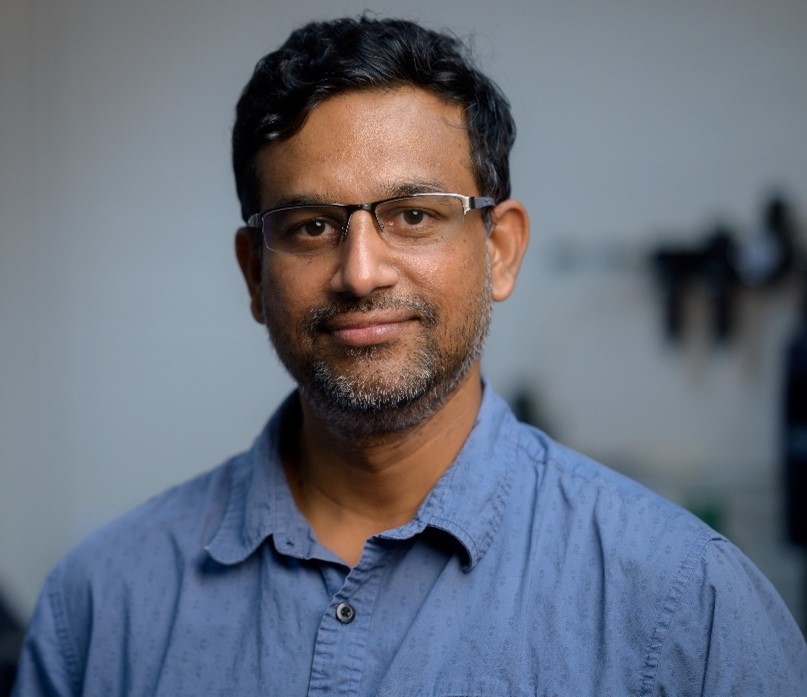 Krishna Muralidharan, University of Arizona, United States
Krishna Muralidharan, University of Arizona, United States
Krishna Muralidharan is a Professor in the department of Materials Science and Engineering at the University of Arizona, with joint appointments at the Lunar and Planetary Laboratory, and the Graduate Interdisciplinary Program in Applied Math. He currently serves as the Director of the Center for Semiconductor Manufacturing at the University of Arizona. His research focuses on implementing integrated computational materials engineering paradigms to push the frontiers of semiconductor device technologies, additive manufacturing, multiscale energy storage systems, and planetary materials analysis. Muralidharan got his PhD from the University of Arizona in 2004, and prior to joining the University of Arizona as a faculty member, he worked at Los Alamos National Laboratory and the University of Florida. Muralidharan is the author of around 100 peer-reviewed publications, and is also the co-editor of the book Integrated Computational Materials Science and Engineering (Springer 2015).
 Julien Nicolas, University of Paris-Saclay, France
Julien Nicolas, University of Paris-Saclay, France
Julien Nicolas received his PhD degree in 2005 from the University Pierre and Marie Curie. After a postdoctoral position at the University of Warwick, he obtained in 2007 a permanent CNRS researcher position at Institut Galien Paris-Saclay and got promoted Director of Research at CNRS in 2016 and group leader in 2019. His current research activities lie in advanced macromolecular synthesis and in the design of innovative polymer-based nanomedicines, in particular polymer nanoparticles and polymer prodrug nanocarriers for anticancer therapy. He is (co)author of more than 125 peer review articles in international journals, 7 patents and 13 book chapters. He serves as Associate Editor for Chemistry of Materials (ACS) and is part of the Editorial Advisory Board of ACS Macro Letters (ACS), Macromolecules (ACS) and Polymer Chemistry (RSC). He received the 2016 SCF/GFP award, the 2017 Polymer Chemistry Lectureship award, the 2017 Novacap Prize of the Academy of Science, the 2018 Biomacromolecules/Macromolecules Young Investigator Award and the Prix des Innovateurs de la Région Île-de-France in 2023.
 Emily Pentzer, Texas A&M University, United States
Emily Pentzer, Texas A&M University, United States
Emily Pentzer is Professor of Chemistry and Materials Science and Engineering at Texas A&M University, USA where she is also a Presidential Impact Fellow. Her work addresses the design, synthesis, and application of composite polymer materials for energy related applications, converging synthesis and processing. Prof. Pentzer currently serves as the inaugural Editor in Chief of RSC Applied Polymers (since 2023) and is a member of the 3rd cohort of the New Voices program at the US National Academies of Science, Engineering, and Medicine.
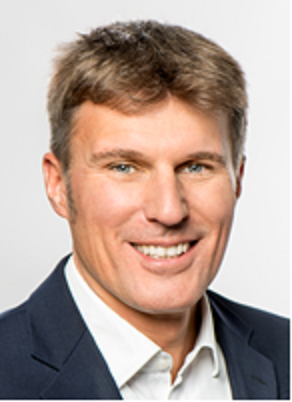 Karsten Reuter, Fritz-Haber-Institut der MPG, Germany
Karsten Reuter, Fritz-Haber-Institut der MPG, Germany
Prof. Karsten Reuter is Director of the Theory Department of the Fritz Haber Institute (FHI) of the Max Planck Society in Berlin, Germany. He specifically works on multiscale models that combine predictive-quality first-principles techniques with coarse-grained methodologies and machine learning to achieve microscopic insight into the processes in working catalysts and energy conversion devices. Karsten did his doctoral studies on theoretical surface physics in Erlangen, Madrid and Milwaukee. Following research experiences at the FHI in Berlin and the FOM Institute in Amsterdam, he headed an independent Max Planck Research Group. From 2009 to 2020 he was Chair for Theoretical Chemistry at the Technical University of Munich (TUM). He recently held visiting professorships at Stanford (2014), MIT (2018), and Imperial College London (2019), and is a Distinguished Affiliated Professor at TUM as well as Honorary Professor at the Free University and Humboldt University in Berlin.
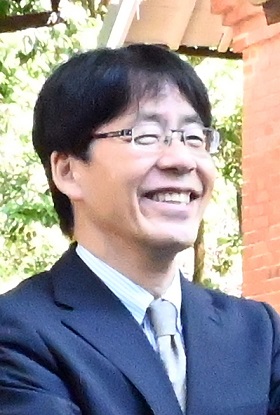 Yuichi Shimakawa, Kyoto University, Japan
Yuichi Shimakawa, Kyoto University, Japan
Yuichi Shimakawa is a professor at Institute for Chemical Research, Kyoto University, Japan. He received his Ph.D. from Kyoto University in 1991. He is currently the Director of the Institute. His expertise is in solid-state chemistry and materials science, and his main research interests are in the functional properties of novel transition-metal oxide materials. He has been awarded the Honda Research Award in 1994, the Thomson Scientific Research Front Award in 2007, the Chemical Society of Japan Award for Creative Work in 2013, the Daiwa-Adrian Prize in 2016, the Commendation for Science and Technology in 2017, and the Yazaki Memorial Foundation for Science and Technology Award in 2021.
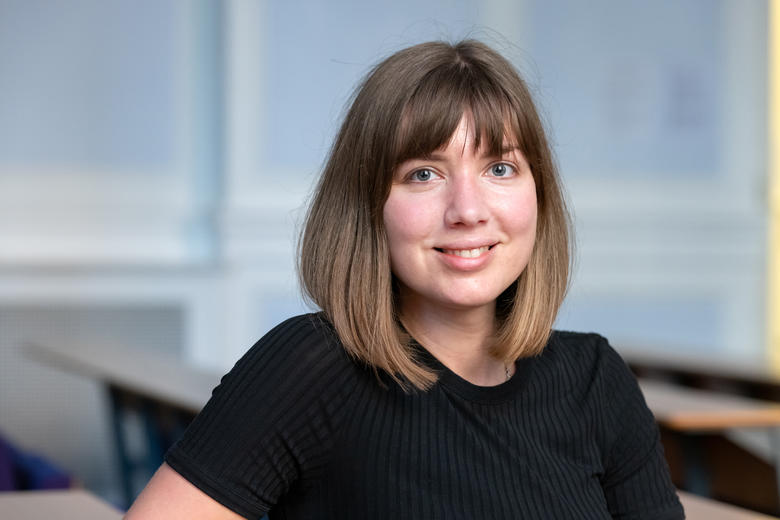 Ludmilla Steier, University of Oxford, United Kingdom
Ludmilla Steier, University of Oxford, United Kingdom
Ludmilla is an Associate Professor of Inorganic Chemistry and the Goodenough Tutorial Fellow at Saint Catherine’s College. She obtained her B.Sc and M.Sc. degrees in Chemistry from the University of Siegen (Germany). Already during her undergraduate studies she developed an interest in electrochemistry and semiconductor physics driving her to pursue her M.Sc. final project on dye-sensitized solar cells in the group of Professor Michael Grätzel at the École Polytechnique Fédérale de Lausanne (EPFL, Switzerland). Staying in the same group, she worked on oxide thin film photoelectrodes applied in photoelectrochemical water splitting and perovskite solar cells during her Ph.D. degree which she obtained in 2016.
Ludmilla joined the group of Professor James Durrant at Imperial College London to study photochemical and photophysical processes in semiconductors using time-resolved spectroscopy and shortly after was awarded the Marie Skłodowska-Curie Fellowship (2017-2019). Ludmilla began her independent research career as Imperial College Research Fellow (2019-2021) before moving to Oxford in October 2021.
Ludmilla was awarded the 2023 Materials Chemistry Early Career Prize from the Royal Society of Chemistry for seminal contributions to the understanding of defect chemistry in semiconducting materials and interfacial energetics in photocatalytic and photovoltaic devices.
Her group’s research at Oxford aims at the design of atomically defined photo- and electrocatalysts that convert CO2, water and other “waste products” to energy-rich fuels and chemicals with high conversion efficiency, selectivity and long operational stability which they pursue thanks to funding by the UKRI (for the ERC Starting Grant), SCG Chemicals, the Royal Society, the John Fell Fund and the University of Oxford.
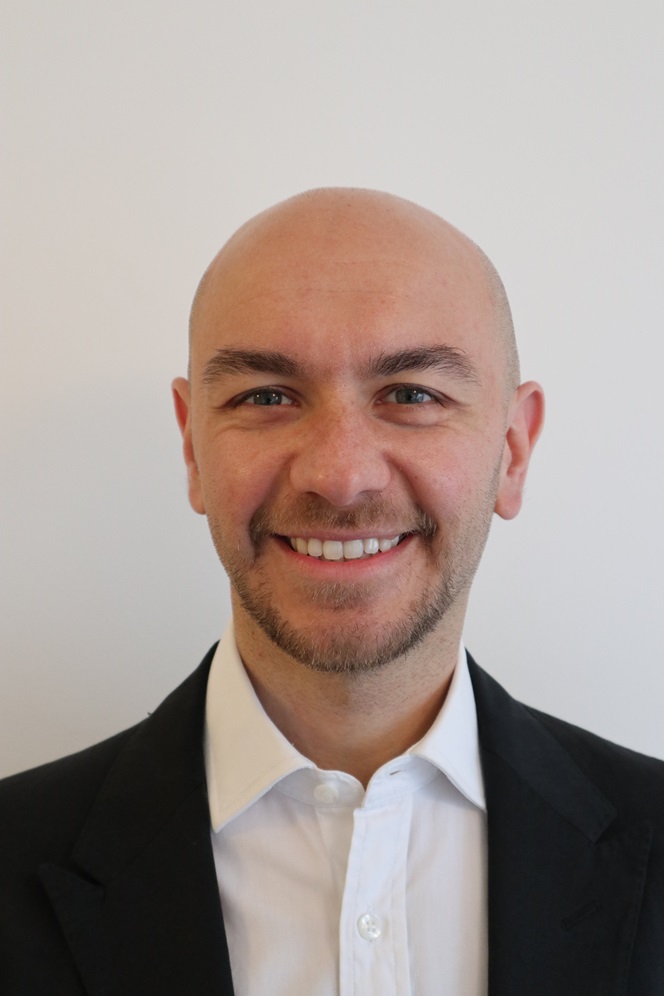 Felice Torrisi (Harrison-Meldola Prize winner), Imperial College London, United Kingdom
Felice Torrisi (Harrison-Meldola Prize winner), Imperial College London, United Kingdom
Felice Torrisi is a Senior Lecturer in Chemistry of 2D materials in the Department of Chemistry at Imperial College London, UK. He is an executive board member of the Centre for Processable Electronics the, Institute for Digital Molecular Design and Fabrication and the EPSRC E-Textile network. His research interests cover graphene and related two-dimensional materials for flexible electronics and photonics, with particular focus on energy, sensing, wearable electronics and bioelectronics. In his career, he received the Schlumberger Research Fellowship, the Parmee Prize for Entrepreneurship and Enterprise and the Harrison-Meldola award by the Royal Society of Chemistry. He co-autored more than 75 publications, receiving > 11000 citations, and is the co-founder of three start-ups in the area of graphene, printed electronics and electronic textiles. He contributed to the development of the Science and Technology roadmap for Graphene.
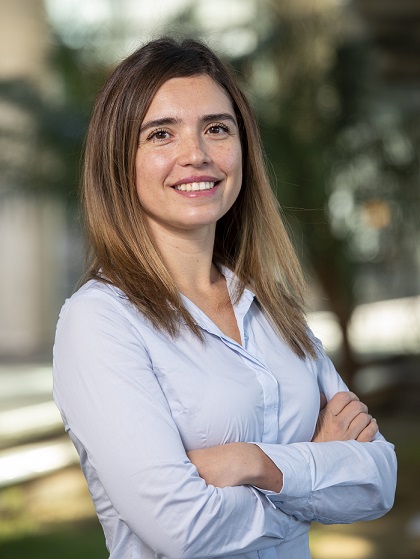 Katherine Villa, Institute of Chemical Research of Catalonia (ICIQ-CERCA), Spain
Katherine Villa, Institute of Chemical Research of Catalonia (ICIQ-CERCA), Spain
Katherine Villa completed her Ph.D. in Chemistry at the Autonomous University of Barcelona. After two research positions at the Catalonia Energy Research Institute and the Institute for Bioengineering of Catalonia, she joined the Center for Advanced Functional Nanorobots in the Czech Republic, where she worked as a senior scientist for 3 years. Prof. Villa currently leads the "Advanced Photocatalytic Materials" research group at the Institute of Chemical Research of Catalonia (ICIQ). Her scientific trajectory has been recognized by several awards and distinctions, including the EuChemS Lecture Award by the European Chemical Society, Young Researcher Award by the Spanish Royal Society of Chemistry, appointed member of the Young Academy of Spain, among others. Furthermore, she has secured international competitive funding, including a prestigious ERC Starting Grant 2022 for her project “PhotoSwim”. Her research interests include light-driven micro/nanomotors, nanomaterials, renewable energy, and environmental remediation.
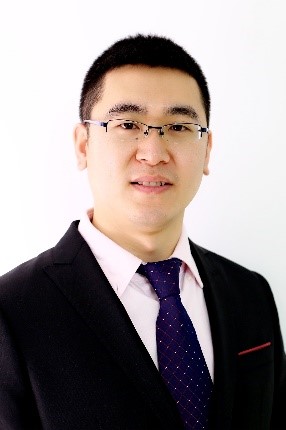 Minghui Yang, Dalian University of Technology, China
Minghui Yang, Dalian University of Technology, China
Minghui Yang, FRSC, is a Professor at Dalian University of Technology. He earned his M. Chem. degree from the University of Liverpool and completed his Ph.D. in Materials Chemistry at the University of Edinburgh in 2010 under Professor J. Paul Attfield. Following postdoctoral research at Cornell University with Professor Francis J. DiSalvo, he has received numerous awards including the National Overseas High-Level Talents (Youth Project) (2013) and the Zhejiang National Science Fund for Distinguished Young Scholars (2019). With 263 publications in SCI journals and 21 patents, He leads the Solid State Functional Materials Lab at DUT and CAS. His research focuses on solid-state materials for catalysis and sensing.
-
Manish Chhowalla
University of Cambridge, United Kingdom
-
Luisa de Cola (Centenary Prize winner)
Università degli Studi di Milano, Italy
-
Kalpana Katti
North Dakota State University, United States
-
Paul Wright
University of St Andrews, United Kingdom































